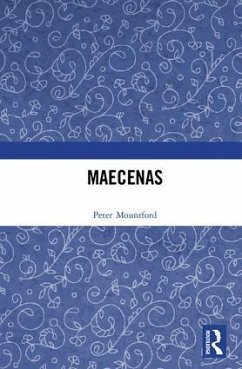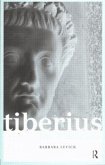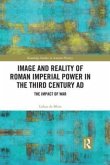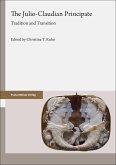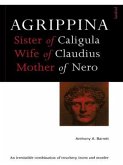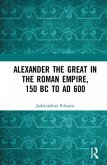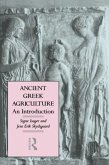While much has been written of the importance of Agrippa in Augustus' rise to power as the first emperor of Rome, Maecenas remains a shadowy figure despite being a vital part in the success of Augustus. After the assassination of Julius Caesar, Maecenas was a vital negotiator between Octavian and Mark Antony in the years leading up to the battle of Actium, and a wise political advisor to Augustus during the early years of the new regime. This is the first biography of Maecenas in English and gives due credit to the stature of Maecenas both as a confidant of the emperor and as patron of the poets Virgil, Horace and Propertius. The book devotes a chapter to each poet's relationship with Maecenas and the Augustan regime: the chapter on Virgil, while considering his relationship to Maecenas and Augustus, argues that the origins of his choice of Aeneas may lie in Etruria rather than elsewhere, while the chapter on Horace assesses one of the closest documented relationships of Roman history. The chapter on Propertius wrestles with the disparate views of scholars on the question of his relationship with the Augustan regime and argues that, at heart, he remains an Umbrian/Etruscan rather than a Roman. A crucial feature of the book is the provision of 161 texts from ancient Roman and Greek authors which mention Maecenas. Based on sustainable evidence this study of the importance of Maecenas takes scholarship in new and important directions.
Hinweis: Dieser Artikel kann nur an eine deutsche Lieferadresse ausgeliefert werden.
Hinweis: Dieser Artikel kann nur an eine deutsche Lieferadresse ausgeliefert werden.
"Mountford the gives us a look at Maecenas as patron of the arts, and particularly at the man's influence on the work of Virgil, Horace, and Propertius, activities not necessarily divorced from his role as advisor to Augustus. He is particularly valuable when discussing the literary roots of Virgil's Aenead, which played a major role in promoting the new regime. While primarily of value to those with an interest in the literature of the Augustan era, serious students of Roman society and politics during the chaotic period of the civil wars and the creation of the Principate will find much of interest here as well." - The NYMAS Review, Autumn-Winter 2019

